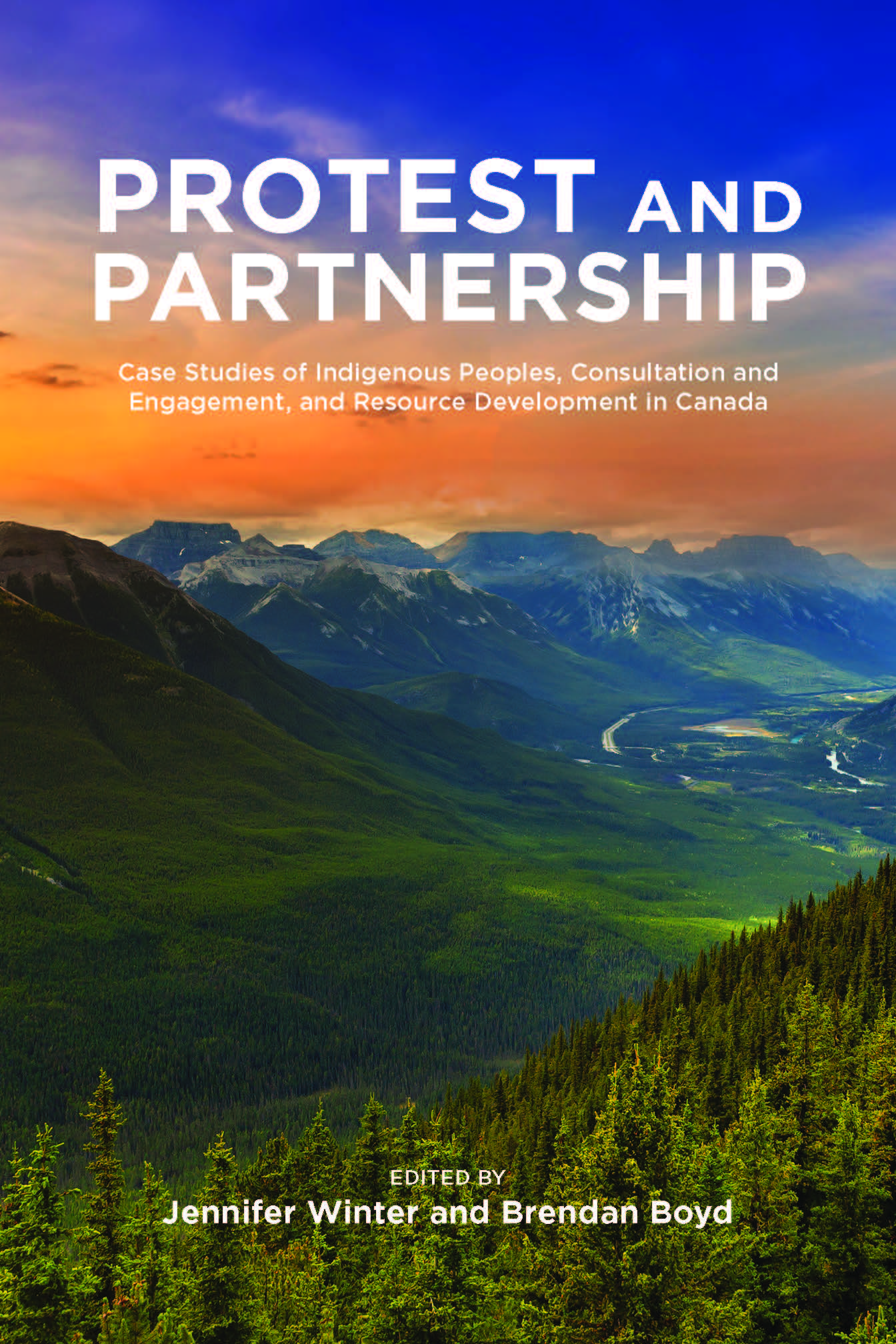
Protest and Partnership: Case Studies of Indigenous Peoples, Consultation and Engagement, and Resource Development in Canada
Edited by Jennifer Winter and Brendan Boyd
$68.99 HC / $38.99 PB (S)
258 pages, 11 illustrations
6 x 9 inches
Hardback: 978-1-77385-203-4
Paperback: 978-1-77385-204-1
Epub: 978-1-77385-207-2
Library PDF: 978-1-77385-206-5
April 2024
Protest and Partnership explores in detail the processes and institutions used to engage Indigenous peoples in resource development.
The development of equitable relationships and outcomes among Indigenous communities, resource development companies, and governments in Canada is slow and uneven. Protest and Partnership brings together expert contributors to ask what works—and what doesn’t—in these relationships. It explores what processes lead to greater involvement and control in decision-making by Indigenous Peoples and the establishment of mutually beneficial partnerships.
Protest and Partnership presents case studies on a range of resource development sectors including oil and gas, renewable energy, mining, and forestry, drawn from regions across Canada. It presents a fine-grained analysis of institutions and processes, demonstrating how Indigenous communities work within and outside frameworks and processes established by governments and industry. It recognizes the persistent failure of Canadian governments to honour treaty rights and provide meaningful consultation and demonstrates how Indigenous groups, communities, and governments have engaged in self-determined resource development despite these ongoing failures.
Offering broad lessons in the importance of co-management and co-governance, the autonomy of Indigenous Peoples, transparency and accountability, Indigenous economic security, and meaningful collaboration and engagement, Protest and Partnership is a thorough and careful exploration of the current state of consultation and engagement on resource development with Indigenous communities in Canada.
About the Editors
Jennifer Winter is an associate professor in the Department of Economics and the School of Public Policy at the University of Calgary and the departmental science advisor at Environment and Climate Change Canada. She has testified to the Senate of Canada and House of Commons as an expert on emissions pricing and is actively engaged in increasing public understanding of environmental policy issues.
Brendan Boyd is an assistant professor in the Department of Anthropology, Economics and Political Science at MacEwan University, where he teaches courses in environmental policy and politics. His research is focused on learning and cross-jurisdictional influences among Canadian provinces responding to climate change
Foreword
Introduction
Brendan Boyd and Jennifer Winter
1. Indigenous, Industry and Government Perspectives on Consultation and Engagement in Resource Development
Brendan Boyd, Sophie Lorefice, and Jennifer Winter
2. Honouring Modern Treaty Relationships: Intent and Implementation of Partnerships in Yukon
Kirk Cameron, Emily Martin, and Cody Sharpe
3. Inuit Engagement in Resource Development Approval Process: The Cases of Voisey’s Bay and Mary River
Thierry Rodon, Aude Therrien, and Karen Bouchard
4. “It’s Time to Make Things Right”: Protests and Partnerships in the Implementation of Livelihood Rights in Mi’kma’ki
L. Jane McMillan, Janice Marie Maloney, and Twila Gaudet
5. To Consult or Not to Consult? A Tale of Two Provinces
Victoria A. Bikowski and Gabrielle Slowey
6. Meadow Lake: Looking Back on 30 Years of Aboriginal Forest Management and Manufacturing
Stephen Wyatt and Jonah Dumoe
Conclusion
Jennifer Winter and Brendan Boyd
Contributors
Index
Protest and Partnership is an essential reader for scholars, activists, and practitioners interested in the dynamic field of Indigenous consultation and engagement in the extractive industry sector. Focused on Canada, the volume’s themes resonate globally with resource-rich countries seeking to balance contending political, economic, and environmental interests. An important contribution not only to the study of Indigenous rights in resource governance but to the study of how to do research in partnership with Indigenous communities.
—Roberta Rice, Department Head, Political Science, University of Calgary